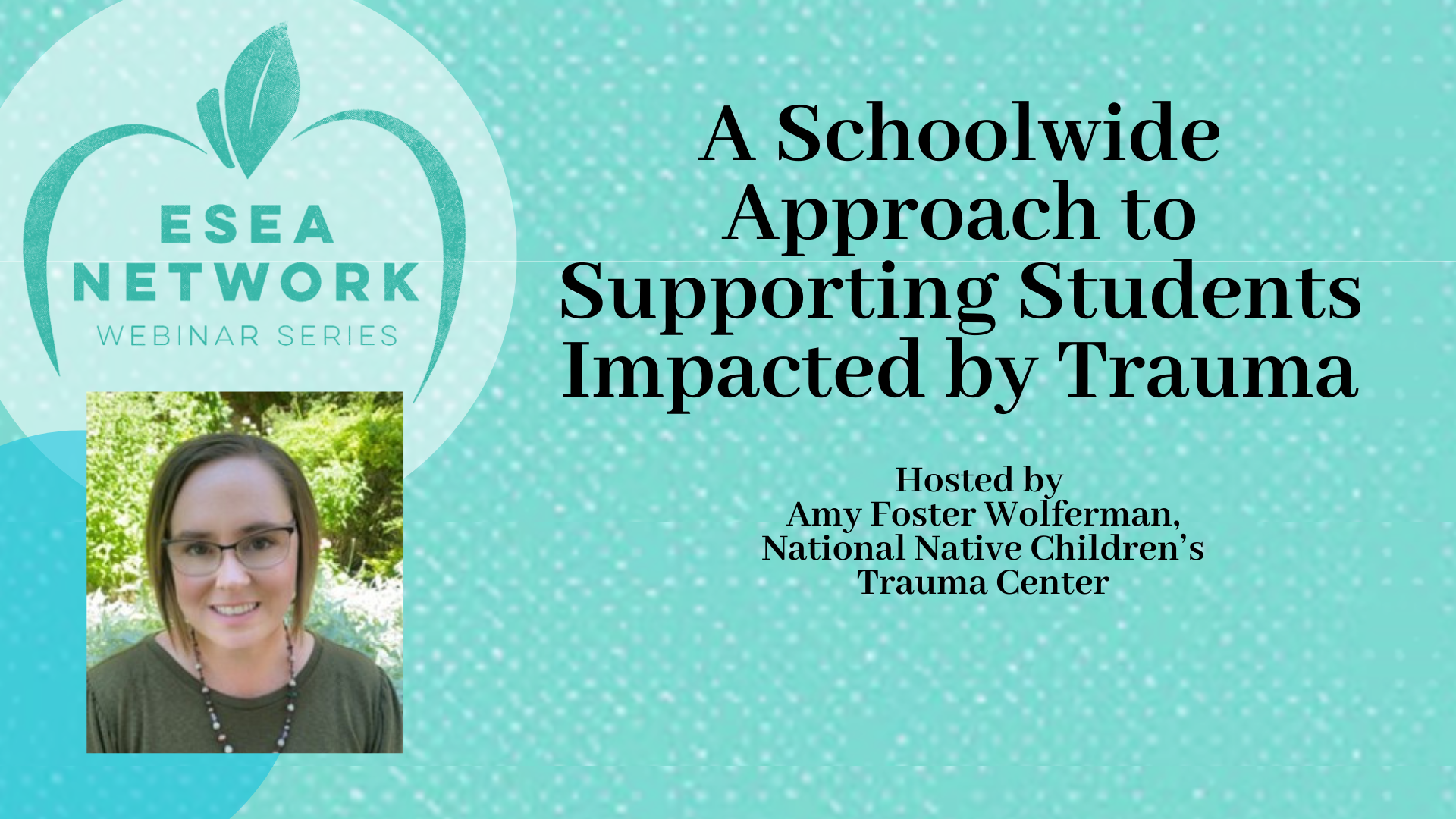
A Schoolwide Approach to Supporting Students Impacted by Trauma
Presented Wednesday, September 6th 2-3:30pm EDT
This webinar is provided FREE of charge, but requires registration.

The live broadcast of the webinar begins on Wednesday, September 6th at 2 - 3:30pm Eastern (1pm Central, 12pm Mountain, 11am Pacific).
This webinar will discuss key components to a schoolwide approach for supporting students impacted by trauma. Components include developing staff understandings about trauma and its impacts (the trauma lens); identifying and adopting trauma-informed best practices utilizing a multi-tiered framework of prevention and intervention strategies; and connecting school-based approaches and practices with local, culture and community. In addition, specific trauma-informed social emotional learning curricula for classrooms (Bounce Back for Classrooms and Students, Trauma and Resiliency [STAR]) and trauma-focused, school-based therapeutic interventions (Cognitive Behavioral Interventions for Trauma in Schools [CBITS], CBITS for American Indian Youth, and Bounce Back) will be highlighted.
Hosted by Amy Foster Wolferman M.Ed, National Native Children’s Trauma Center
Bio: Amy Foster Wolferman M.Ed, Director of School-Based Training and Technical Assistance for the National Native Children’s Trauma Center provides training and technical assistance to educators, school leaders, families, and community members in trauma resilient school systems and practices, secondary traumatic stress interventions, Trauma-Informed Positive Behavioral Interventions and Supports (PBIS), bullying prevention and suicide prevention. Ms. Foster Wolferman’s primary area of focus is helping schools support the social and emotional needs of students impacted by trauma. She co-authored the Bounce Back for Classrooms trauma-focused social skills curriculum; co-developed a trauma-informed systems change model, Trauma Resilient Schools with NNCTC colleagues; and co-wrote the Walking the Four Directions: Traditional View of Discipline trainer’s manual. In addition, she has served as an Implementation Specialist in Multi-Tiered Systems of Support (MTSS) and as a Consultant for Positive Behavioral Interventions and Supports (PBIS) for schools; and has a background in teaching, early childhood education, special education, and working with youth in the outdoors.
Join us live to participate in chat with the presenter and other attendees. A recorded version will be available shortly after the webinar ends.

National Association of ESEA State Program Administrators (NAESPA) & the ESEA Network
NAESPA is a membership organization of state directors and state-level staff working in the federal education programs which are authorized by the Elementary & Secondary Education Act (ESEA). NAESPA’s mission is “building the capacity of education professionals to provide children served by ESEA programs with a high quality education.”
ESEA Network is a project of NAESPA. It is the embodiment of the National ESEA Conference, Video OnDemand service, professional development opportunities, and resources--as well as the people brought together by these connections on www.eseanetwork.org.

National Native Children's Trauma Center
As a Category II Treatment and Service Adaptation Center within the National Child Traumatic Stress Network, our focus is on increasing service providers' ability to respond to the trauma-related needs of American Indian/Alaska Native (AI/AN) children and youth in culturally appropriate ways.
Approximately 1 in 4 U.S. children will experience a significant traumatic event by the age of 16. Research suggests that Native American youth are at increased risk of trauma, depression, and PTSD as a result of grief and exposure to violence. When exposure to traumatic events occurs frequently, or when traumatic stress is left unaddressed, children may be susceptible to relationship problems, drug and alcohol abuse, violent behavior, suicide and depression, problems in school, and bullying and victimization.
We provide training in evidence-based and promising practices as well as technical assistance in trauma-informed systems change across all tribal child-serving systems, including schools, behavioral health providers, child welfare agencies, and juvenile justice systems. We also assist in the cultural adaptation of evidence-based and promising practices and develop products and practices intended for use in Native communities.


